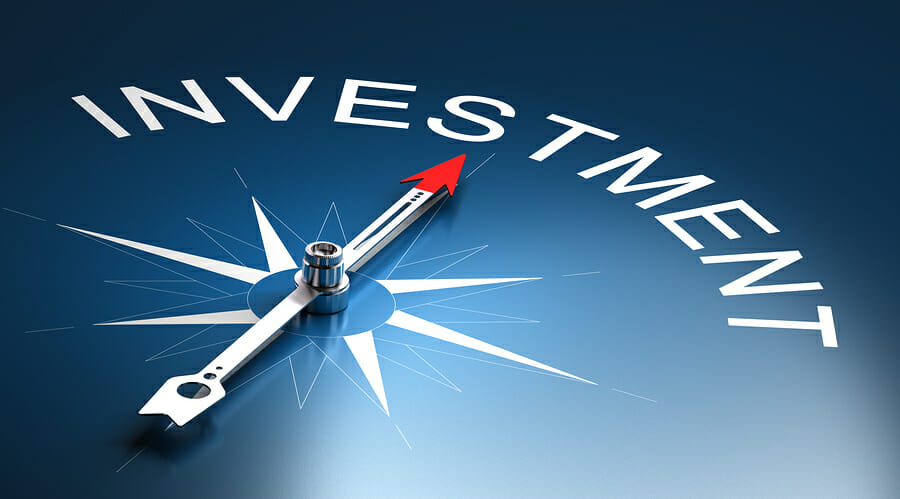
Is This the Best Kept Secret to Early Retirement?
When most people think of early retirement, they think of 401(k)s, IRAs, and other common investment vehicles. However, there is another option that is often overlooked by investors: tax lien certificate investing – and it’s more lucrative than you may believe.
Contrary to popular belief, tax lien certificate investing is a great way to achieve early retirement. In this blog post, we explore the benefits of this investing method and how it will help you reach your retirement goals as well as dispel some of the myths that keep investors from taking advantage of this opportunity.
Surprisingly few people know about tax lien certificates even though this type of investing has been around more than 200 years.
Those that are ‘in the know’ look completely past tax lien certificate investing, expecting they need to know more about it before they can even begin to think about getting involved. While this is true, it is not as complicated as you might think.
If you’re looking for a solid investment opportunity that doesn’t require a lot of work, long hours, sweat equity or capitalizing your current home; tax lien certificate investing is right up your alley!

What are Tax Lien Certificates?
A tax lien is placed against any homeowner’s property when they neglect to pay their taxes on time (or at all). Any homeowner who fails to pay their property tax has a lien for unpaid property taxes placed against their property. In short, it is a legal claim against the property when the taxes aren’t paid.
It is important to note that it does not mean the tax lien certificate investor owns the property (as when you purchase a tax deed). Talking about tax deeds, you should also be aware that not all states offer Tax Lien Certificates. About half the states hold tax deed auctions that give you direct ownership of the property instead of lien certificates that provide interest on your money.
Selling tax lien certificates is the tax authority’s way of making sure they get paid before everyone else does, so the county can continue to pay for essential services, like fire fighters, peace officers, waste management, schools, and so on.
These tax lien certificates are sold at auction for pennies on the dollar to the highest bidder. The minimum bid is the amount of taxes owed on the property, since the government needs to be paid in order to continue essential services.
So how much will you realistically make if the certificate is redeemed? This varies by state. The rate may range anywhere from 8% to 34%, which is the highest rate paid at the time this article was written.
If the tax lien certificate was not redeemed however, (meaning, the property owner did not pay the taxes owing), you as the certificate holder may foreclose on the property and sell it for a healthy profit.
The Benefits of Investing in Tax Lien Certificates that You Don’t Know
Tax lien certificate investors make their money in one of two ways:
- The property owner can redeem the lien by buying it back from you, the tax lien certificate investor, plus significant interest and penalties (as mandated by the local government); or
- If the property owner does not pay, you can foreclose on the property and sell it for a massive profit – remember, you only paid pennies on the dollar!
Either way, your profitable return is guaranteed by the local government involved.
With as little as a few hundred dollars, anyone, including you, can purchase tax liens, which are backed by real estate, that eventually yield profits to the investor in the form of interest income or capital gains when sold.
How to Get Started Profiting With Investing in Tax Lien Certificates

Tax lien certificates are purchased through auctions.
To get started, search online for where these auctions are held, and what real estate properties will have tax lien certificates auctioned off.
Next, get a list of properties with tax lien certificates up for bid by visiting the website of the county that the auction is located in. From this list, narrow down the properties that you are interested in bidding on.
Granted it is not for the faint of heart, but the good news is that with a little training you can learn how to read these lists and identify the best investment opportunities_._
It is important to do your due diligence prior to bidding on any properties. At a minimum, you need to research the following before bidding on a tax lien certificate:
-
Look up your property on Zillow.com.
- Are there pictures of the property? If so, does the property look to be in good condition? How old are the pictures?
- Look at the property values in the immediate vicinity of your property.
- What is the assessed value of the property you are researching?
-
Look up your property on Google, and view it with ‘street view’.
- Pay attention again to the date of the images – old pictures may be very deceiving.
- Take a look around the neighborhood – does the area add to the value of the property?
-
Finally, and most importantly, drive by and view the property yourself. If this is not possible, reach out to a friend or family member who can drive by on your behalf and report back to you what the condition of the property is.
Once you have verified the condition of the property you wish to bid on, determine before the auction what your highest bid will be so that your profit margins are strong.
Warnings To Heed When Investing In Tax Lien Certificates
While tax lien certificates are a low-risk investment, it is not without its dangers. To mitigate this risk, familiarize yourself very well with the rules specific to the county you are bidding in. These rules vary from state to state and sometimes county to county.
For instance, some states or counties accept forms of payment that another state or county might not allow. Some states require a deposit. The registration deadline will vary from state to state or county to county, and some may offer online bidding.
The allowable interest rate that you can collect will also vary depending on where the auction takes place. This further underlines the importance of familiarizing yourself with the county’s rules and regulations.
3 Top Tips for Successful Tax Lien Certificate Investing
#1: Understand the effort and time commitment involved
While tax lien certificate investing is an excellent source of passive income that is a great addition to your early retirement portfolio, it does take patience and, of course, you must learn how to do the due diligence. If you invest the time – only a few hours every week – you will reap the most profits.
#2: Become very familiar with the rules and auction process specific to the county you are buying from.
The last thing you want is to learn too late that you don’t qualify to bid at the auction. The information you need is accessible in every county. Continue educating yourself on the local process. Don’t be shy about calling the tax authority and asking questions to help you understand the process further. And finally,
#3: Invest in a course and/or a coach/mentor
Many pitfalls are avoided by seeking the guidance of someone with experience in tax lien investing. Online courses are available as a supplement to your coaching.
When investing in tax lien certificates, there are many pitfalls that investors run into if they do not seek the guidance of a coach or mentor. Those who have made a number of tax lien investments before can provide a wealth of knowledge to those who want to learn about tax liens and tax lien investing.
By seeking out a coach, you may avoid making mistakes such as over-bidding or bidding on worthless property.
Bottom Line: The Money’s On the Table. Will You Leave it There?
With a little research, learning and legwork, tax lien investing can yield high rewards, enough to retire early and rich. The low risk that exists is mitigated by arming yourself with knowledge that is easily accessible to you.
Don’t forget…this investment opportunity has been around for more then two hundred years – it’s about time you cashed in on it.